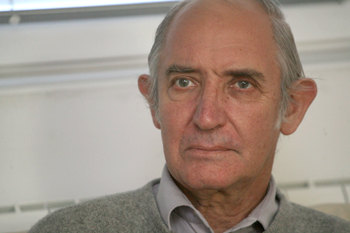A team of scientists has managed to produce electricity from hydrogen sulphide in the Black Sea. The discovery gives hope to inventors in search of new and environmentally friendly sources of energy. Hydrogen sulphide that is present in the Black Sea does not allow for life to exist in 90% of its waters, but it can still be valuable as a renewable energy source with great benefits to the economy. This is what prof. Venko Beshkov from the Institute of Chemical Engineering in Sofia, who led the experiments, says. The project involves also scientists from the Institute of Oceanology at BAS, as well as scientists from Georgia and Romania. According to prof. Beshkov, there were some 4.5 billion tons of hydrogen sulphide in the Black Sea, which could produce around 10-12 TWh annually. Calculations show the quantity of hydrogen sulphide formed in the sea for a year is 10 times more than the amount of natural gas Bulgaria buys. "There will be no greenhouse gas emissions in processing of water from the sea," Professor Beshkov explains and adds:
 "The idea is to transform energy from the deep waters of the Black Sea into electricity. We have developed an original fuel cell design, which allows for the use of hydrogen sulphide and oxygen from the air for the production of electricity. The idea of the processing technology belongs to us and the institute has been working on it for four years. During experiments the probes of the ‘Academic’ ship reached a depth of 1000 meters, where the concentration of hydrogen sulphide is high enough. We found out that by pumping out water from the deep sea we actually get much better results in comparison to laboratory experiments. There exist similar earlier experiments conducted by Bulgarian and Russian scientists for producing energy from seawater. The experiments then aimed at decomposition of hydrogen sulphide. However, this led to a large amount of energy used and lots of waste. In our work, the energy consumption is much lower than the energy we finally receive. Now the aim is to reach high powers of produced electricity, which would create practical interest among potential investors. Our work continues and we aim to improve the reliability of materials and mechanisms used in the fuel cell, in order for it to be more suitable for practical application. I do not want to make predictions about the future, but in a year or two we would have an electricity-producing facility located in the sea. The goal is to connect it to the national electricity grid and hopefully after proving successful, our project would attract serious investors. Currently, we enjoy the support and interest among fellow scientists. They closely follow the development of our project.”
"The idea is to transform energy from the deep waters of the Black Sea into electricity. We have developed an original fuel cell design, which allows for the use of hydrogen sulphide and oxygen from the air for the production of electricity. The idea of the processing technology belongs to us and the institute has been working on it for four years. During experiments the probes of the ‘Academic’ ship reached a depth of 1000 meters, where the concentration of hydrogen sulphide is high enough. We found out that by pumping out water from the deep sea we actually get much better results in comparison to laboratory experiments. There exist similar earlier experiments conducted by Bulgarian and Russian scientists for producing energy from seawater. The experiments then aimed at decomposition of hydrogen sulphide. However, this led to a large amount of energy used and lots of waste. In our work, the energy consumption is much lower than the energy we finally receive. Now the aim is to reach high powers of produced electricity, which would create practical interest among potential investors. Our work continues and we aim to improve the reliability of materials and mechanisms used in the fuel cell, in order for it to be more suitable for practical application. I do not want to make predictions about the future, but in a year or two we would have an electricity-producing facility located in the sea. The goal is to connect it to the national electricity grid and hopefully after proving successful, our project would attract serious investors. Currently, we enjoy the support and interest among fellow scientists. They closely follow the development of our project.”
English version: Alexander Markov
On 26 and 27 April, Sevlievo in Central Bulgaria is hosting the festival “Seme Balgarsko ”. For its 11 th edition, the organizers have a colourful traditional lineup. “The festival will enable visitors to meet manufacturers of Bulgarian..
The group cycling tour along the tourist route of the Black Sea Route Epic Tour 2025 started today . According to the extreme sports website 360mag.bg, a group of more than 30 cyclists will spend ten days riding along coastal paths through forests,..
Cambridge Day 2025 - one of the leading events for English language teachers in Southeast Europe - takes place today at the Balkan Hotel in Sofia. For the 19th consecutive year, the conference, organised by Klett Bulgaria Publishing, gathers experts and..
The FameLab International Science Communication Competition aims to discover, train and give a platform to the world’s most promising new scientists. The..
The "Roses of Bulgaria" festival will be held at the Museum of Emigration in Sao Paulo, Brazil on May 10. The cultural event is organized by the..
The spring St. Nicholas Day gathered hundreds of Burgas residents at Troikata Square , where cooks offered delicious fish soup, mussels, paella and..

+359 2 9336 661
